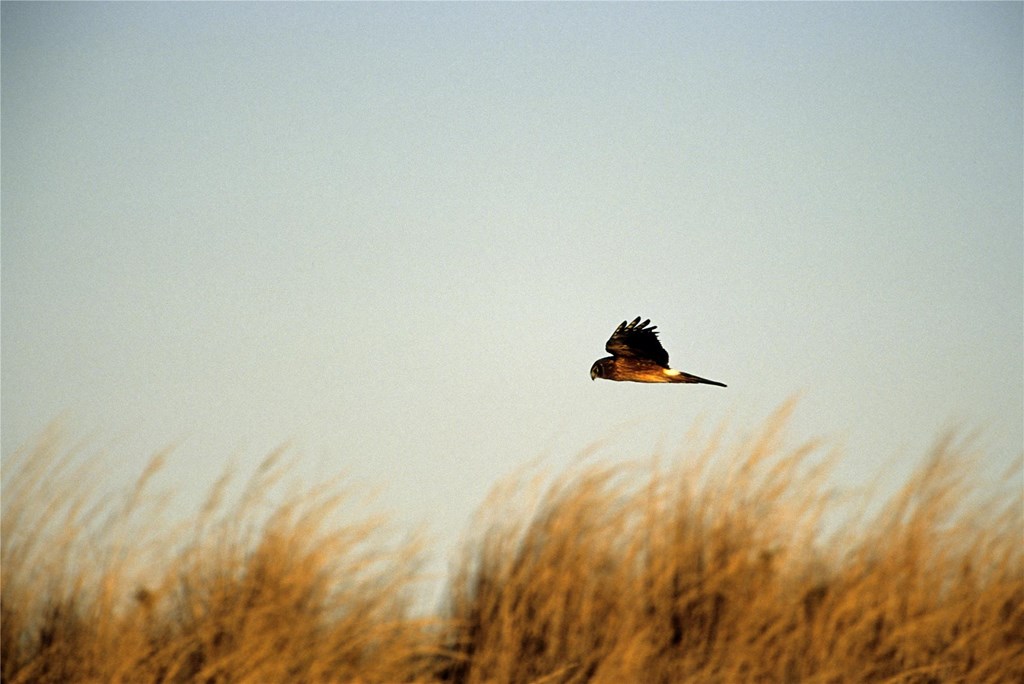Farmland Raptors
American Kestrel
Barn Owl
Northern Harrier
Short-eared Owl
Due to habitat loss, increased development, changes in farming practices, and increased use of pesticides that decrease prey numbers and poison predators, grassland raptors like the barn owl, American kestrel, short-eared owl, and northern harrier have been in a severe population decline over the last ten to twenty years. American kestrels are common, but declining, and short-eared owls are endangered in PA and uncommon across the U.S. The barn owl is near threatened and listed as a Species of Greatest Conservation Need in PA. There are 60-70 confirmed active nests annually, with about 30 or more undocumented nests estimated. The northern harrier is of Special Concern in PA, with shrinking wetlands and open fields among other dangers causing their decline.
These “fabulous four” raptors are important for indicating a healthy environment, controlling rodents, snakes, and large insects, and could lead landowners to reduce pesticide use and potentially make some money through the Conservation Reserve Enhancement Program (CREP). Katie Andrews is the coordinator of the project and has spread its message to hundreds of people through her talks, and we have also reached up to 9,000 more people through events like Farm Show.

Collaborative Work
The Pennsylvania Farmland Raptors Project sees the potential of enlisting the help of local citizen scientists and landowners to aid in the conservation of grassland raptors. By installing nest boxes and setting aside acreage as untouched grassland habitat, landowners can encourage the species to nest on their land. In offering a safe habitat for these raptors to flourish, citizen scientists are performing important conservation work. Volunteers can report their sightings, including the location and raptor behavior, using our online sighting form. Thanks to collaboration with over 400 interested local farmers, landowners, and volunteers, over 276 sightings were reported last year alone. Through the project and sites such as Shaver’s Creek Environmental Center in State College, PA, we have funded dozens of barn owl and kestrel nest boxes. We also work with four school districts to provide opportunities through Agricultural Education for students to build nest boxes and learn about raptor monitoring.
The Future
As more sightings of these raptors are reported, conservationists can paint a more well-rounded picture of the state of PA’s grassland ecosystem. These numbers will help Hawk Mountain to fine tune its conservation strategy and further help these birds to hopefully increase their populations back to normal numbers. We will continue to spread awareness to PA’s landowners and encourage that those with favorable habitat on their property consider setting aside untouched grassland and setting up nest boxes for raptors.
How You Can Help
- Report sightings of the four species to help us better understand distribution
- Help improve or enhance habitat to encourage nesting
- Build and erect a nest box for barn owls or kestrels
- Maintain an area as untouched grasslands to provide nesting sites for short-eared owls and northern harriers
- Encourage other landowners to join us in the project
- Stop using rodenticides
Below are some resources for those who want to learn more or take action. Click to download.
Support
We are thankful for the support and assistance we have received over the years:
- PA DCNR Wild Resources Program
- Private donors and Mountain Members since 2014.
To help support this important research, please contact Director of Conservation Science Dr. Laurie Goodrich (570-943-3411 x106, [email protected]) or donate today using the button below. Be sure to include in the comments of the form that the online gift is for the PA Farmland Raptor Project.